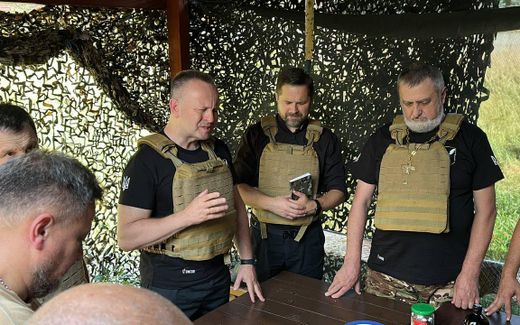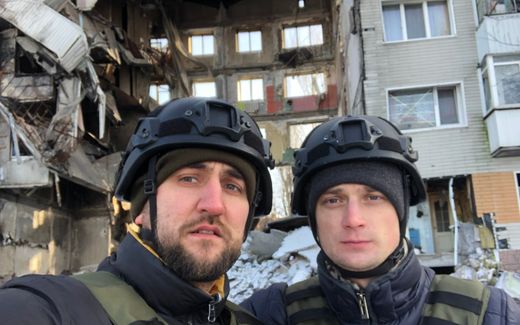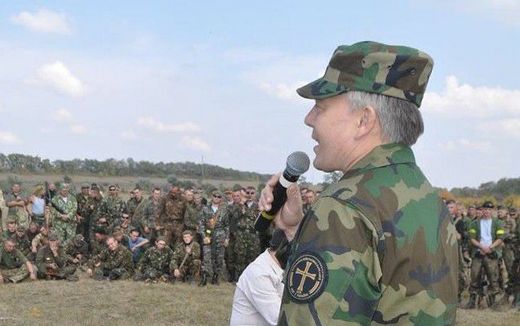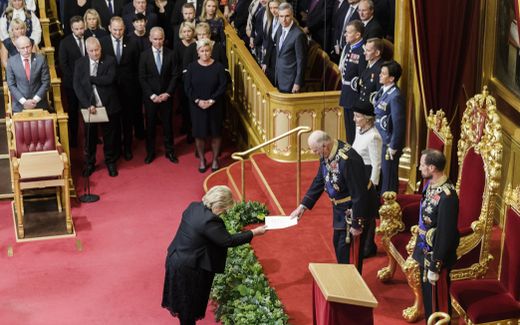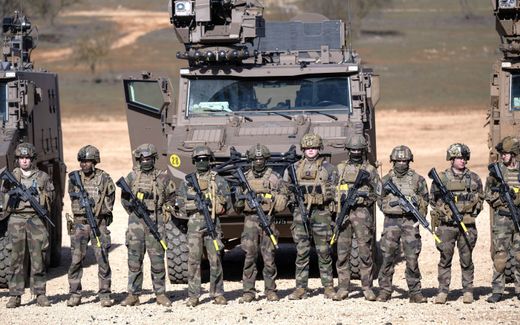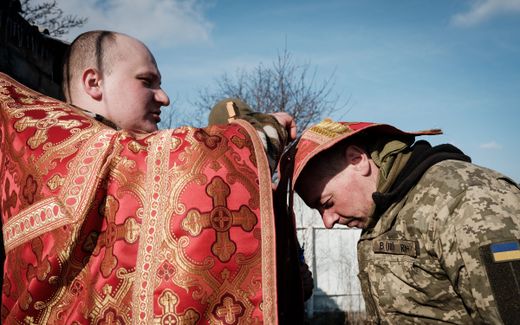Lyudmyla serves as a chaplain in Ukraine: I pray; Lord, send me where I am needed

Chaplain Lyudmyla Marfin. Photo private
Eastern Europe
Lyudmyla Marfin is an ordinary woman who does not stand out in a crowd. Yet, she does something extraordinary. She is a chaplain and visits the front regularly.
Stay up to date with Christian news in Europe? Sign up for CNE's newsletter
In the trenches of eastern Ukraine, the presence of a Christian chaplain isn’t just symbolic but also vital. There, the artillery fire never seems to sleep. Here, faith isn’t something spoken softly from a pulpit. It’s shouted over gunfire, whispered in dying prayers, and lived out with every step taken under threat of death. The Gospel is not just preached on the frontlines; it is carried into battle, it comforts the wounded and the grieving, and it reminds the soldiers that even in war, God has not left them.
Chaplain Lyudmyla Marfin does not display a physical strength or a fearless spirit that are often associated with fighting at the frontline. However, her eyes start to shine when she talks about the soldiers she serves. Love is the driving force of her calling, she says.
Lyudmyla Marfin is a 52-year-old volunteer chaplain at the front. At home, she is raising 18 children in Vinnytsia region, in Ukraine. She currently studies at the Kyiv Theological Seminary and regularly travels to the front line to provide humanitarian aid and pastoral care.
Lyudmyla, your call sign is “Vira” (“faith” in Ukrainian). Why is that?
“At the front, they know me as Vira. I always joke with the guys: “Vira believes, and you should believe”. In 2020, we had classes at the seminary. Some biblical heroes have names given to them by God. I started praying: “Give me your name so that I can know that it is You.” And I am sure that God gave me the name “Vira”, which means “faithfulness.”
The Bible says, “Be faithful to the little ones,” meaning that you have to do everything in your power in the place where God has put you.”
What family do you come from?
“God’s love filled my heart since I started believing in Christ as my personal Saviour at the age of 25. That has influenced my family. Currently, there are 18 children in our house, 11 boys and seven girls. All of them have a different background: one is adopted, others are under guardianship, and others are temporarily dependent on foster care.
“I cannot always be with soldiers in the trenches, but God is there.”
In addition, my husband and I have five biological kids who are now adults and live on their own. But God has called us to become parents to kids that were in need of a family, that is how we ended up with another 18 kids.”
It is quite a long way for a mother of 23 to become a volunteer chaplain. How did God lead you this way?
“When the war started, I prayed to God to use me. I started helping with food and medicine, like many other Ukrainians. We sent the resources to the frontline or delivered them ourselves. Gradually I started to organise trainings for the military. We called it “team-building trainings”. For those who had lost their comrades, I led counselling sessions, visited hospitals, and met their families.”
Are you officially part of the Armed Forces? However, you have not joined the Armed Forces officially?
“I have 18 underage children, so I cannot officially join the Armed Forces. However, I can be a volunteer and serve the soldiers when and how I can.”
As a volunteer chaplain, what is your main responsibility?
“A chaplain works with the souls of people. Our main goal is to change people's attitudes towards the circumstances they are in so that they realise that they are not alone. I cannot always be with soldiers in the trenches, but God is there. That’s why chaplains want to show soldiers that God is always present.
At the front, I don’t hide the fact that I believe in God, but I don’t impose it either. I don’t ask a soldier what type of faith he affiliates himself with. The basis of our relationship is a soldier’s desire to communicate with me; whether a person believes or not is his or her own business.
I always warn my soldiers that I am not going to get into anyone’s soul. I serve God by serving people. However, there are no atheists in the trenches. The war itself changes the attitude of soldiers to faith. The spiritual journey is a long process. We might expect that people confess their sins and start following Christ immediately. But in many cases, the change of attitude is displayed through the softening of the hearts of the soldiers, when they do not oppose prayers but start praying themselves and learn to put their hope in the Lord.”
How do you choose which places you want to go to? Some places are really dangerous.
“I go wherever the soldiers call me. I don’t care about travelling a long distance to the frontline. And often, I don’t even know how close by the enemy is. The soldiers don’t tell me. I always pray: “Lord, send me to where I am needed”.
I try to stay positive regardless of the location I am sent to, especially since the soldiers are watching how I behave, whether my faith in God helps me or not. If they see I am shaking with fear, how can I help them?”
How is your connection with the soldiers you visit?
“Last summer, I served close to Bakhmut. By now, half of the soldiers from there have been killed. I had several deep connections, and I also lost another two.
One of the soldiers wanted to introduce me to his wife and told me how much he loved her. When he went missing, his wife called me. And we walked two months of uncertainty together. Later, we found out that he was killed in Soledar. I went to his burial and grieved with his family.
Sometimes, I act as a courier. For example, I would choose flowers and a gift for a soldier’s beloved and then bring the presents to their families.”
You travel often, and you have many kids at home. How do you combine your family and your calling?
“During my trips to the combat zone, my husband, who is a retired teacher, takes care of the children. Everyone at the front knows that if my husband opposes my trips, I won’t go. But he understands the urgent need and my calling, so he takes on this burden. We have been married for 34 years, and all those years, my husband has been the first and only man in my life. Therefore, everything I do is the outcome of our partnership.”
Have you ever regretted your calling?
“There have been situations when I thought: I will not go to the front anymore. For example, when I feel homesick or just do not want to risk my life any longer. But then the guys sent me a shell casing from their location near Bakhmut. How can I not come after such a gift? I help everyone I can and travel all over the country.
Therefore, all Ukrainians are already my family. When God calls you, you must go. If God fills your heart with love, you love the people you are called to serve.”
Related Articles


